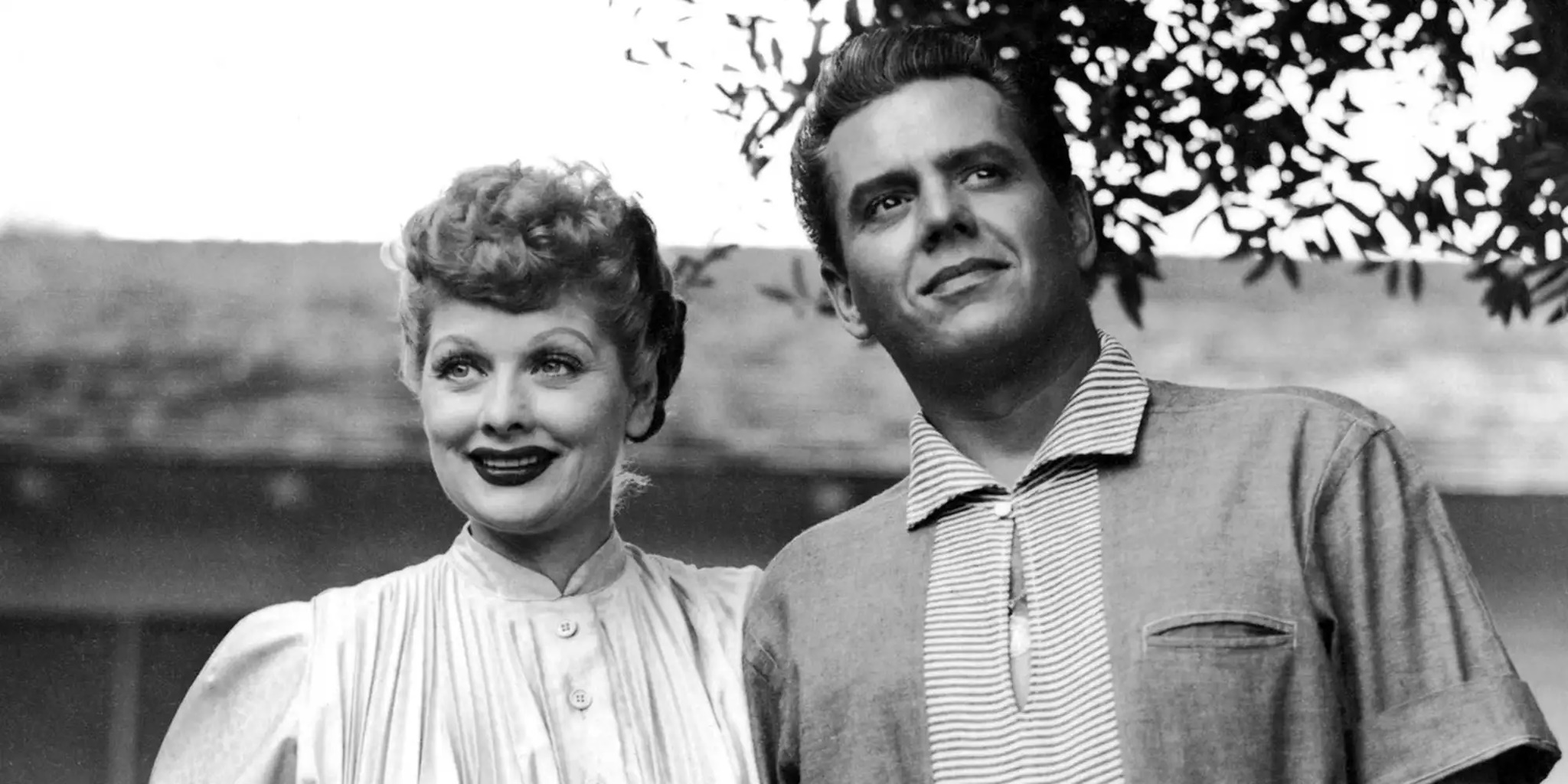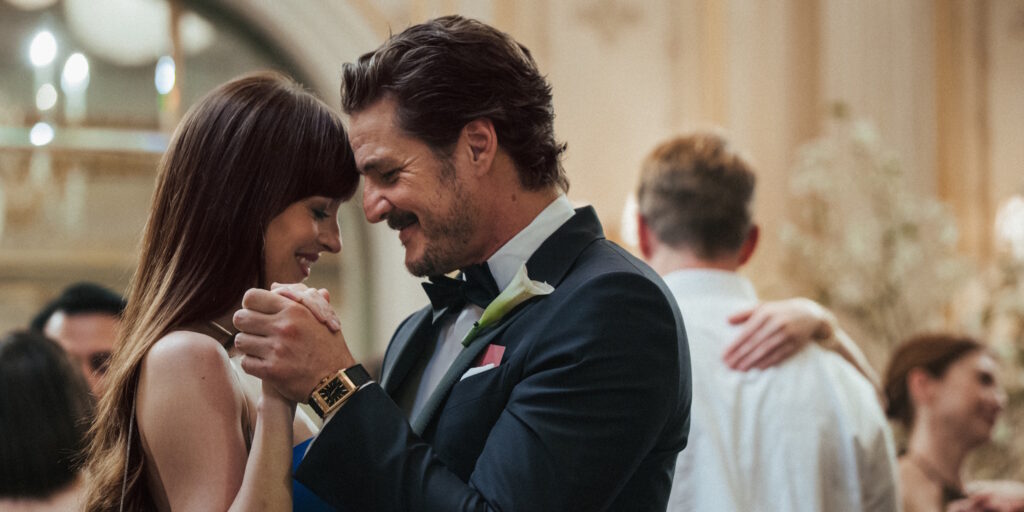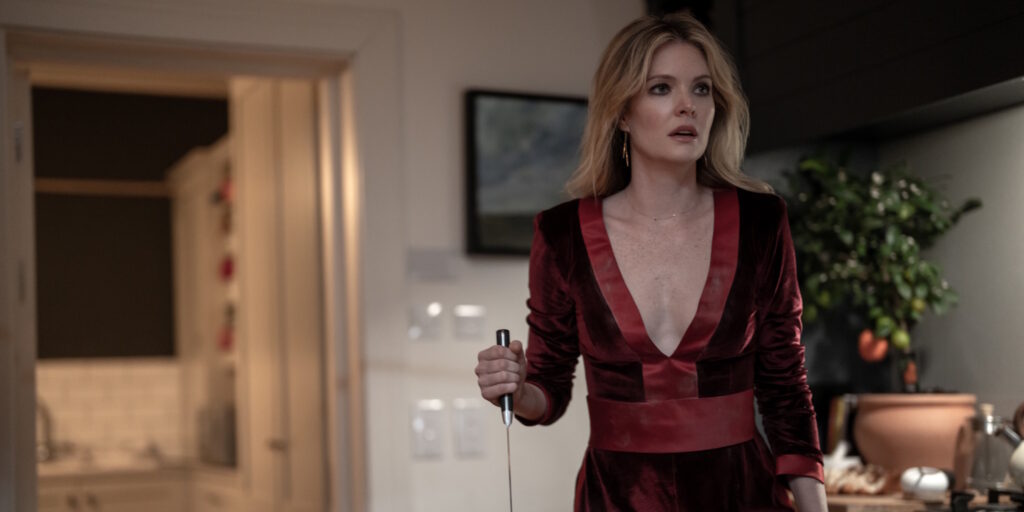[Originally published at Cinema St. Louis’ The Lens.]
For audiences of a certain age — and nostalgic viewers both young and old — the comedy of Lucille Ball is regarded with only the utmost reverence. Whether one watched I Love Lucy (1951-57) loyally in the ’50s, fell in love with the show during reruns in the ’60s and ’70s, or gained an appreciation for it during the great sitcom revival of the ’90s, Ball’s seminal program broke new ground and then kept breaking it for each new generation that rediscovered it. Amy Poehler — another comedian with a robust television resume, from Saturday Night Live (1975- ) to Parks and Recreation (2009-2015) to her numerous guest spots on other, equally popular shows — feels a particular kinship with the small screen’s most famous redhead. Poehler’s soft spot for Ball has always been a focal point of her own comedic style, and with her Wine Country (2020) follow-up Lucy and Desi, she uses her first documentary feature to convince viewers that they should love Lucy, too.
Although Poehler’s affinity lies in Ball’s work on the small screen, Lucy and Desi is about so much more than that: It covers her and husband Desi Arnaz’s separate rises to fame, Ball’s early years as a B-movie all-star, Arnaz’s time as a musician and bandleader in and around Hollywood, their divine convergence on a film set, their subsequent success in front of and behind the camera, their eventual split, and the lasting impact they had on the film and television industry alike.
One would be remiss not to mention the documentary’s timing, arriving less than three months after the release of Aaron Sorkin’s Lucy-Desi biopic, Being the Ricardos (2021) — a dramatized version that hits many of the same beats as Poehler’s doc (and produced and released by the same streamer, no less). The difference here is that, where Sorkin’s feature focuses on one fast-paced week in the lives of Ball and Arnaz during an atypically chaotic period on the set of I Love Lucy, Poehler’s documentary isn’t afraid to take its time. Sorkin’s take breathlessly covers Lucy’s brush with Communism, Desi’s wandering eye, the origins of their relationship, their marriage struggles, their solid work ethic, and their strong bond with the cast and crew of the show, never properly allowing for any of these subject matters to be fully fleshed out. Poehler tackles all this and more, but far more comprehensively.
This has everything to do with the documentary’s tried-and-true formatting, which plays out like a direct adaptation of a thorough biography on the two. Writer-producer Mark Monroe is surely to thank for this, as his name has been attached to some of the most popular, least complicated entries in the genre over the last decade or so: The Cove (2009), Sound City (2013), Fed Up (2014), Before the Flood (2016), Icarus (2017), The Biggest Little Farm (2018), and many more. Monroe’s name is synonymous with these kinds of informative, restrained docs on interesting, weighty subjects designed to get people talking. His films are structured like cinematic books, with each five- to 10-minute segment functioning like one filmic chapter in a string of many. Lucy and Desi is no different, treating audiences like newcomers and leaving no stone left unturned (regardless of whether or not it’s been turned over before).
Because of this unsophisticated format, it can be hard to detect Poehler’s fingerprints on the surface of Lucy and Desi. It’s easy to see why she would this choose the dynamic comedic duo as the focus of her second directorial effort: Not only is Poehler an iconic comedian and actress herself, but she was also a part of a highly publicized marriage (and equally publicized divorce) with frequent co-star Will Arnett. It’s unfortunate that her close, personal connection to Ball’s life isn’t more apparent in the very fibers of this documentary’s being. That’s not to suggest that Poehler should have inserted herself into the narrative — rather, it’s a wish for some element of distinctive stylistic flair that would have made Lucy and Desi undeniably hers instead of just another one of these passable, unimaginative hagiographies.
Despite feeling unimaginatively assembled and anonymously helmed, Lucy and Desi still delivers where one would expect: It’s a wide-ranging biography of two television trailblazers that’s equal parts heart and laughs. A series of talking heads — including Carol Burnett, Bette Midler, and Ball and Arnaz’s children — gush about the kind of parents, stars, and businesspeople the subjects were during their long careers in show business. Clips from their films, their TV shows, their radio appearances, and stills taken from throughout it all are generously placed between interviews, making for a vibrant and energetic run through their decades-long careers. It’s nothing new stylistically — moviegoers have seen this sort of thing countless times before on every notable figure or institution or event under the sun — but it’s a format returned to again and again for a reason: It’s an effective way to tell a life story (or, in this instance, two life stories) in less than two hours.
The one aspect of Lucy and Desi that isn’t well-trodden territory — the one thing that can’t be found scrolling through Wikipedia or watching I Love Lucy best-of compilations on YouTube — is the documentary’s utilization of Ball-Arnaz home movies and Lucy’s personal collection of revelatory tape recordings. The opportunity to hear her one-of-a-kind perspective on her life, her work, and her legacy is something Lucille loyalists will not want to pass up, no matter how infrequent and brief these snippets happen to be. Given the troubling and unethical voiceover trend on the rise in documentary filmmaking — where filmmakers will rely on the use of fake voiceovers created by blending an impersonator reading from a script with an AI software that fine-tunes the sound to better suit the subject’s speaking pattern — it’s reassuring to see (or hear, rather) Poehler stick to authenticity over artificiality.
For all its genre trappings, for all the rough patches it glosses over in favor of heaping on more praise, for all the disguising of old information as new or surprising, Lucy and Desi does manage to nail the landing in the most impactful way imaginable: by circling back and doubling down on the two’s relationship and what made it so special. It would be one thing to make a documentary about one person or the other, but what Poehler has done is emphasize the fact that they didn’t stand alone, and they didn’t want to. Lucy and Desi weren’t just a couple — they were a pair of stars, a pair of businesspeople, and a pair of once-in-a-lifetime talents that happily and willingly shared the spotlight long after the end of their show, their marriage, and eventually their lives. Poehler understands this, and Lucy and Desi is all the better for it.
Lucy and Desi will be available to stream on Amazon Prime on Friday, Mar. 4.




